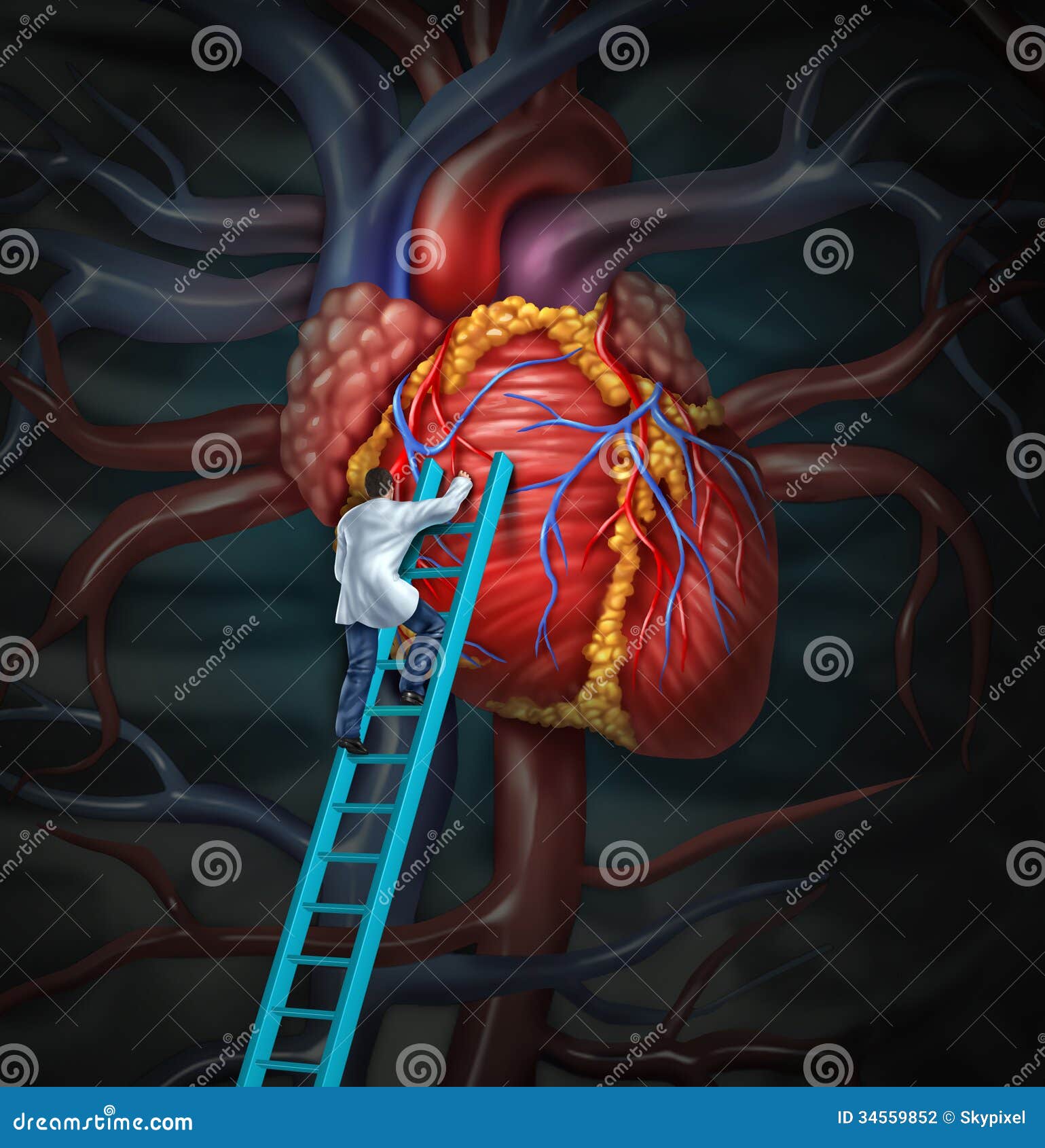
Image source: https://thumbs.dreamstime.com/z/heart-doctor-therapy-health-care-medical-concept-surgeon-cardiologist-climbing-ladder-to-monitor-inspect-34559852.jpg
Cardiology is a domain of medicine dealing with diseases of the heart and also parts of the circulatory system. The domain includes medical diagnosis and medication of congenital heart defects, coronary artery disorders, heart failure, valvular heart disorder and electrophysiology. Physicians specializing in this area of medicine are known as cardiologists, a specialty of internal medicine. Pediatric cardiologists are pediatricians specializing in cardiology. Physicians specializing in cardiac surgery are called cardiothoracic physicians or cardiac doctors, a specialty of general surgery.
The physician is proficient in the following skills and techniques:
Evaluates and Manages coronary artery disorders and its manifestations and complexions; arrhythmias; hypertension; cardiomyopathy; valvular heart disorders; pericardial disease; pulmonary heart disorders, comprising pulmonary embolism; peripheral vascular disease; cerebrovascular disease; heart disorder in pregnancy; adult congenital heart disorder; cardiovascular trauma.
Manages acute and chronic congestive heart failure, acute myocardial infarction and other acute ischemic syndromes, acute and continuous arrhythmias, preoperative and postoperative patients, heart transplant patients, geriatric patients with cardiovascular disorder.
Diagnoses techniques that include magnetic resonance imaging, fast computerized tomography, and positron emission tomography.
Learning about a Non-Invasive Cardiologist:
A non-invasive heart specialist runs a practice assisting patients to head-off potential heart problems. The average non-invasive cardiologist looks about 25-30 patients per day in his clinic. Non-invasive cardiologists dont operate; they mainly execute diagnostic tests to spot early symptoms of heart disorders. If the problem can be healed with diet or medication, the doctor will prescribe the appropriate drug therapy or any specific diet.
If the heart problem needs any type of surgical operation, the non-invasive cardiologist will refer the patient to another physician. Non-invasive cardiologists perform stress tests and electrocardiograms, commonly known as EKGs to gauge the status of your heart. Non-invasive cardiologists also perform nuclear cardiology tests where a small quantity of a radioactive dye, or tracer, is inserted into a persons bloodstream. This tracer enables to take detailed pictures of the heart and the encompassing blood vessels. These nuclear images are used for diagnosing many heart disorders.
Work of an Invasive, Non-Interventional Cardiologist:
Invasive cardiologists are skilled in a diagnostic procedure known as cardiac catheterization, which is used to identify and mark out blockages of the arteries. In broader terms, a non-invasive cardiologists time is divided among looking at patients in the clinic and the cath lab that is rigged with diagnostic imaging tool used to support catheterization processes. If a heart blockage is diagnosed, a non-interventional cardiologist suggests the patient to a professional in angioplasty or heart surgery.
Work of an Interventional Cardiologist:
Most interventional heart specialists in Nagpur are authorized medical doctors having seven years of post-medical school training. As per professionals, interventional cardiology is a sub-specialty of internal medicine and needs a three-year internal medicine residency, connected by an interventional cardiology residency. As per researchers, interventional cardiologists require one year of advanced training in catheterization, angioplasty, stents and Rotablator; alaser which scrapes off plaque in the arteries. Interventional cardiologists pass long hours in hospitals operatically placing catheters and cardiac stents into hearts and executing balloon angioplasty to release the blocked arteries.
Work of a Cardiac Electro-Physiologist:
Specialization in this type of sophisticated domain is endless; yet another option for cardiologists is to finish an additional two-year fellowship in electrophysiology, that is the study of the bio-electrical impulses of the heart that control the pace of an individuals heartbeat. When the electrical impulses are not performing properly, it may cause a heart arrhythmia that can be dangerous if left untreated. Cardiac electro physiologists are skilled to perform interventional cardiac electrophysiology education as well implant surgical instruments or pacemakers.
Some Cases when you should Visit a Cardiologist:
Physician recommendation:
If your family-care doctor advises you visit a cardiologist, do it. Youll must visit then.
Pain in Heart:
This is the time you must. You can see a full list of heart disease symptoms below. If you have any concern about whether or not you are experiencing a symptom, however, get consulted out.
Family History:
If anyone in your family has or has had heart issue, you should be aware of heart disorder symptoms and consider taking consultation from a cardiologist about them.
High Total Cholesterol:
Total cholesterol is the total of all the cholesterol in your blood. The higher your total cholesterol, the greater the risk for heart disorder.
Diabetic:
Unfortunately diabetes can promote heart disease. If you feel symptoms of heart issues and are diabetic, you must visit a cardiologist.
Conclusion:
If you have any of the symptoms that are mentioned above or if your initial care doctor suggests you visit a cardiologist, you must do it. Your heart is the most essential muscle of your body, so take care of it. So, if you are suffering from any of the heart disease or know any of your dear one, dont make late.